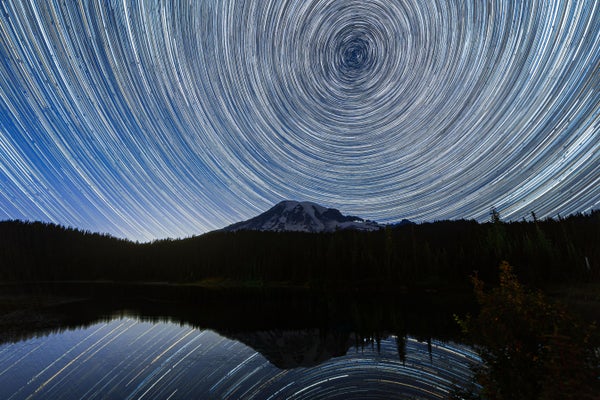Global Warming Is Slowing the Earth’s Rotation
Drastic polar ice melt is slowing Earth’s rotation, counteracting a speedup from the planet’s liquid outer core. The upshot is that we might need to subtract a leap second for the first time ever within the decade
Joseph Gruber/Alamy Stock Photo
As rising global temperatures melt Earth’s polar ice sheets, the shifting water is creating such a huge redistribution of our planet’s mass that its rotation speed is dropping. This unusual result of climate change is interacting with other forces that affect the planet’s rotational speed in ways that could ultimately even alter the way we keep time. In just a few years, we may have to make the first-ever deletion of a “leap second”—according to a new study published on Wednesday in Nature.
“This is another one of those ‘this has never happened before’ things that we’re seeing from global warming: the idea that this effect is large enough to change the rotation of the entire Earth,” says study co-author Duncan Agnew, a geophysicist at the Scripps Institution of Oceanography.
The mass of the miles-thick ice sheets that cover Greenland and Antarctica exerts a strong gravitational pull on the oceans. As the ice sheets melt, all that mass shifts away from the poles and toward the equator, reducing that pull and also causing Earth’s rotation to slow down. To understand why this happens, picture a figure skater gracefully spinning on the ice with their arms tucked tightly around their head. As they gradually lower their arms and extend those limbs outward, their spin slows down.
On supporting science journalism
If you’re enjoying this article, consider supporting our award-winning journalism by subscribing. By purchasing a subscription you are helping to ensure the future of impactful stories about the discoveries and ideas shaping our world today.
“It’s so interesting how multifaceted the impacts of ice melts are,” says…
Read the full article here







